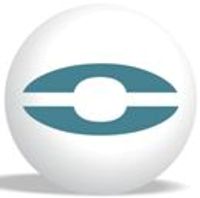Abstract
To develop critical thinking skills that are typical of a reflective practitioner is for most students in nursing a difficult process.Not only is it difficult for them to evaluate themselves, but they can find it extremely difficult to evaluate their own colleagues. The process can, however, be simplified. When students are supported by reflective lecturers who are willing to let themselves be evaluated and who encourage the students to evaluate them, the process becomes less threatening. Through this they learn that nobody has all the knowledge that is needed to optimally nurse patients and that there ought to be a continued search for new information and knowledge.Interpersonal contact between lecturers and students is therefore crucial in the development of the students into reflective nurses.Distance education in developing countries is currently viewed as an innovative development. It is in accordance with the concept of lifelong learners.In countries like Africa, and certainly also in other developing countries worldwide, education for persons in rural areas are made accessible through distance education. However, the question that also arises is whether reflective learning through distance education is possible.
References
Ayer, S & Smith, C 1998 Planning flexible education to match the needs of consumers: a national survey. Journal of Advanced Nursing, 27(5): 1034 – 1047
Bailey, D & Moore, J 1989 Closing the distance: counseling at O.U. residential schools. Journal of Guidance and Counseling, 17(3): 317 - 330
Davis, L & Crowther, D 1995 Active Learning 3, The benefits of using multimedia in higher education: myths and realities. CTISS Publications Oxford
Edwards, N, Hugo, K, Cragg, B & Peterson, J 1999 The integration of problem-based learning strategies in distance education. Nurse Educator, 24(1): 36 - 41
Freire, P 1972 Pedagogy of the Oppressed. Middlesex: Penguin Books Garrison, DR 1992 Critical thinking and self-directed learning in adult education: an analysis of responsibility and control issues. Adult Education Quarterly, 42(3): 136 - 148
Hawks, JH 1992 Empowerment in nursing education: concept analysis and application to philosophy, learning and instruction. Journal of Advanced Nursing, 17: 609 – 618
Hopper, KB 2000 Are digital distance learners learning or just distant? Letter. Respiratory Care, 45(4): 432 - 434
Jarvis, P 1992 Reflective practice and nursing. Nurse Education Today, 12: 174 – 181
Kelly, J & James, C 1991 The process of facilitation in open learning. Conference Paper, Nurse Education Tomorrow Conference, Durham University, Durham Lawton, S 1997 Supportive learning in distance education. Journal of Advanced Nursing, 25(5): 1076 - 1083
Leasure, AR, Davis, L & Thievon, SL 2000 Comparison of student outcomes and preferences in a traditional vs World Wide Web-based Baccalaureate Nursing Research Course. Journal of Nursing Education, 39(4): 149 – 154
Lia-Hoagberg, B, Vellenga, B, Miller, M & Tao-Yuan, L 1999 A partnership model of distance education: students’ perceptions of connectedness and professionalization. Journal of Professional Nursing, 15(2): 116 - 122
Lyons, J 1999 Reflective education for professional practice: discovering knowledge from experience. Nurse Education Today, 19: 29 – 34
Murphy, M 1995 Open learning: the manager’s and educationalist’s perspective. Journal of Advanced Nursing, 21: 1016 - 1023
O’Neill, ES 1999 Strengthening clinical reasoning in graduate nursing students. Nurse Educator, 24(2): 11 - 15
Paul, RW & Heaslip, P 1995 Critical thinking and intuitive nursing practice. Journal of Advanced Nursing, 22: 40 – 47
Powell, JH 1989 The reflective practitioner in Nursing. Journal of Advanced Nursing, 14: 824 – 832
Price, B 1997 Defining quality student feedback in distance learning. Journal of Advanced Nursing, 26: 154 - 160
Reilly, CE 1998 A satisfaction survey on distance education: A model for educating nurses in the Cognitive Treatment of patients with Addictive Disorders. Journal of Psychosocial Nursing, 36(7): 38 – 41
Reinert, BR & Fryback, PB 1997 Distance learning and nursing education. Journal of Nursing Education, 36(9): 421 – 427
Schön, DA 1987 Educating the reflective practitioner. San Francisco: Jossey-Bass Publishers Zalon, ML 2000 A prime-time primer for distance education. Nurse Educator, 25(1): 28 - 33

